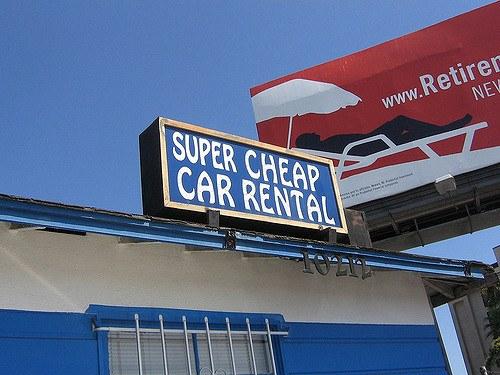
Last week, Enterprise Rent-A-Car became the bulls-eye of criticism over its engagement with the American Legislative Executive Council (ALEC). Enterprise joined ALEC in its quest to curb the growing trend of rising car-rental excise taxes across the U.S.
As first reported in the Guardian, Enterprise’s paying membership with ALEC associates the company with a consortium that has written and advocated for laws curbing action on a wide array of issues, from plastic bag bans to the adoption of renewables. Organizations such as the Center for Media and Democracy, as well as publications including TriplePundit, have long called out companies that claim to tackle social and environmental challenges on one hand, while they spring for ALEC memberships that in the end strive to sabotage local and state policies.
Despite the baggage that comes with being a paid ALEC member, Enterprise refuses to budge. When a TriplePundit writer called out the car-rental giant on Twitter, the company posted this response: “Our work [with] ALEC is solely focused on fighting unfair car rental excise taxes on behalf of all car-sharing and rental customers.”
Indeed, car-rental taxes, along with other hospitality taxes such as those on hotel stays, are increasing across the country. For almost 40 years, starting with the “taxpayers revolt” that led to a cap on property taxes in California under Proposition 13, taxpayers have long resisted tax increases. Municipalities, however, found few arguments when it comes to taxing visitors, as the recent history of hotel tax increases in California shows. Whether the purpose of those taxes is to make up for budget shortfalls or to build a proposed football stadium in San Diego, these surcharges are a way to pay for new projects with little financial impact on local residents. And the reality is that cities such as New York, Los Angeles and Las Vegas get away with imposing such taxes because few visitors are going to cancel their travel plans because of a car-rental or hotel tax. Hence the data reveals that businesses can make a case that hospitality taxes are increasing at too rapid of a rate, Forbes reported.
On that point, Enterprise and other car-rental companies argue that these taxes have too detrimental of an effect on both their business and consumers’ pocketbooks. Last year, Enterprise announced its ramped-up opposition to car-rental taxes by playing the time-worn “low income” argument, citing statistics that those earning the least are paying a disproportionate share of these fees.
To that end, Enterprise has also aligned with a coalition, Curb Automobile Rental Taxes (CART), which demands that Congress pass legislation that would stop the increase of car-rental taxes across the country. Claiming that such taxes are “regressive” and “violate the Constitution,” CART argues that stalling these taxes will grow the economy and remove “barriers” to companies and consumers. Nevertheless, this organization does not specify an alternative to these taxes.
And CART is opening a can, as the unconstitutionality argument could also apply to parcel taxes, cell phone taxes and taxes on utility bills. CART is trampling on states’ rights, as well as the rights of regional governments to balance their budgets and pay for projects as they see fit in an era where services and revenues are often on the decline.
ALEC signed on to this anti-tax agenda with a resolution posted on its site last year. And therein lies Enterprise’s problems, even if the company’s alliance with ALEC is solely limited to car-rental tax policy. This organization has a history of pushing legislation written by the powerful few with little input from citizens. And it makes Enterprise look like a hypocrite for signing up with a movement that often sides with the ideas of self-government and limited federal control – unless, of course, local rule just so happens to have a negative impact on a company’s bottom line.
Image credit: Jonathan Brodsky/Flickr

Leon Kaye has written for 3p since 2010 and become executive editor in 2018. His previous work includes writing for the Guardian as well as other online and print publications. In addition, he's worked in sales executive roles within technology and financial research companies, as well as for a public relations firm, for which he consulted with one of the globe’s leading sustainability initiatives. Currently living in Central California, he’s traveled to 70-plus countries and has lived and worked in South Korea, the United Arab Emirates and Uruguay.
Leon’s an alum of Fresno State, the University of Maryland, Baltimore County and the University of Southern California's Marshall Business School. He enjoys traveling abroad as well as exploring California’s Central Coast and the Sierra Nevadas.














